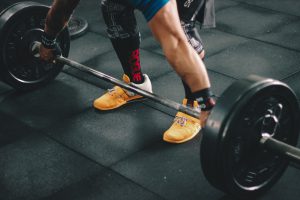You might have seen someone at your local gym wearing a mask that looks like Bane from the movie Batman, and wondered, “what is going on? Are they wearing this mask to look cool? What does it do? Are they training for

something intense?” The masks are called elevation training masks, and people claim that it helps their performance, speed, and endurance with usage. The mask covers your mouth and nose and is supposed to be equivalent to high altitude training. It will cost you almost $100 for the mask. There are some mixed reviews about it, but does it actually work, and is it worth the money?

Higher Altitude Training
High altitudes have less oxygen in the air, making it thinner, and harder to breathe. When it is harder to breathe, there is less blood oxygenation. Running in these conditions is believed to increase your hemoglobin, which is another word for red blood cell count. When you get a boost to your red blood cell count, it also temporarily boosts your performance. This performance boost occurs when you leave the higher altitude (a mountain), and go back to sea level (where you live).
Do The Masks Work?
Not really. In order to get a performance boost from higher altitude training, it takes weeks, or even months to achieve the boost. People have stated that after they wore the mask and trained at the gym, when they took it off, breathing was easier. But this concept would be the same for anything constricting your breathing while running, naturally you feel better when freed. There is no evidence of these masks increasing your hemoglobin.
The mask may help you breathe better, but wearing it can cause you to faint due to the restriction. There is no clear evidence of the mask improving your athletic ability. And when it comes to lifting with the mask, it should not be done. The shallow breaths you take from the mask will not allow you to focus on the lift, or control the lift. You should be breathing in sync with each portion of the lift. The elevation mask will most likely hurt this workout, rather

than improve it.
Should You Get One?
Always consult with your doctor before considering something new in your workout, especially one that restricts your breathing. If you have heart problems, or high blood pressure, then you should not use an elevation training mask. These masks only restrict the influx of oxygen to your lungs, and endurance training is not limited by the amount of air you get, rather the amount of oxygen in that air. The masks failed to show the same results as actual high altitude training in many studies performed with different groups. Long answer short, no you should save your money and not invest in one of these masks. The most it can do is increase endurance and strength of your respiratory muscles, but the overall take away is it will not boost your performance levels. The elevation masks do not increase your red blood cell count, and they should not be worn while lifting weights. It can only harm you in this instance. Save your money and use it on a personal trainer or supplements instead.